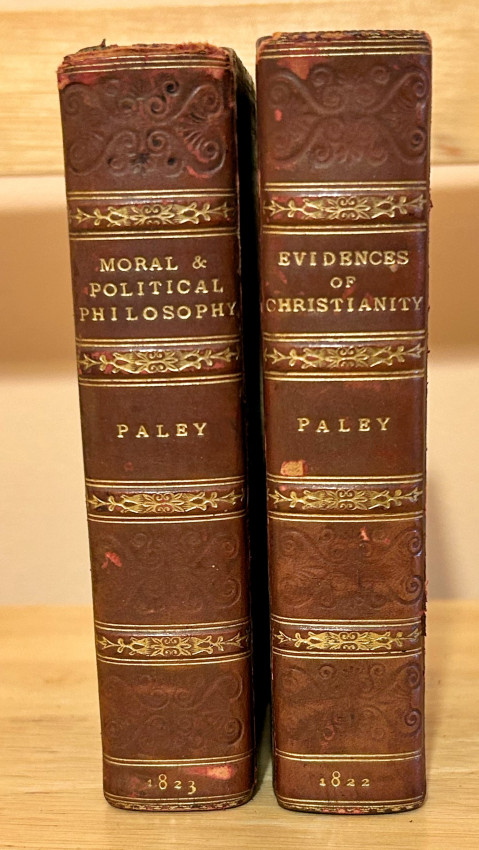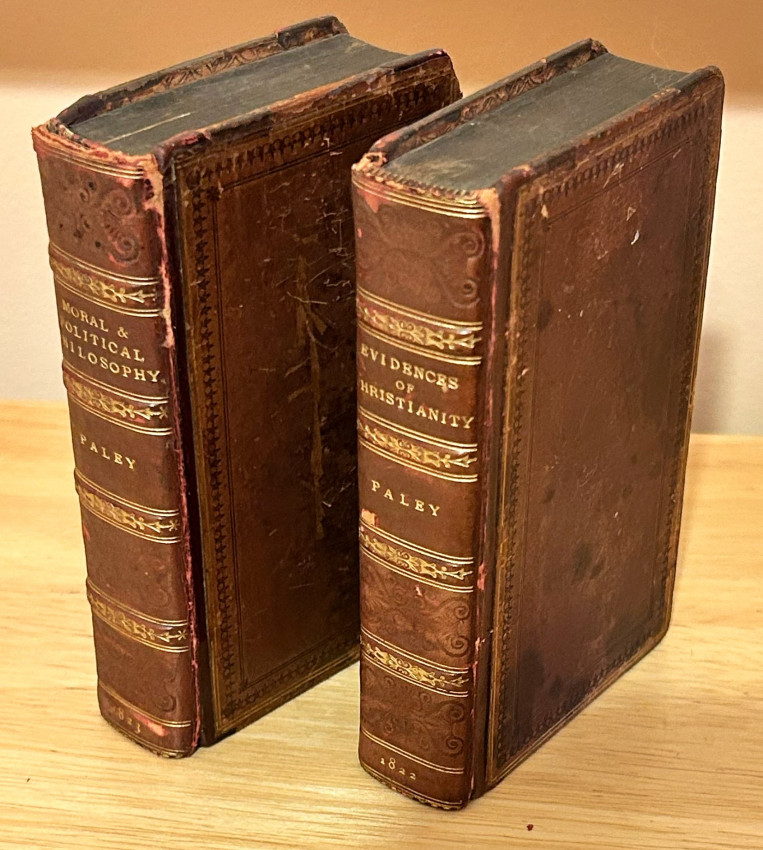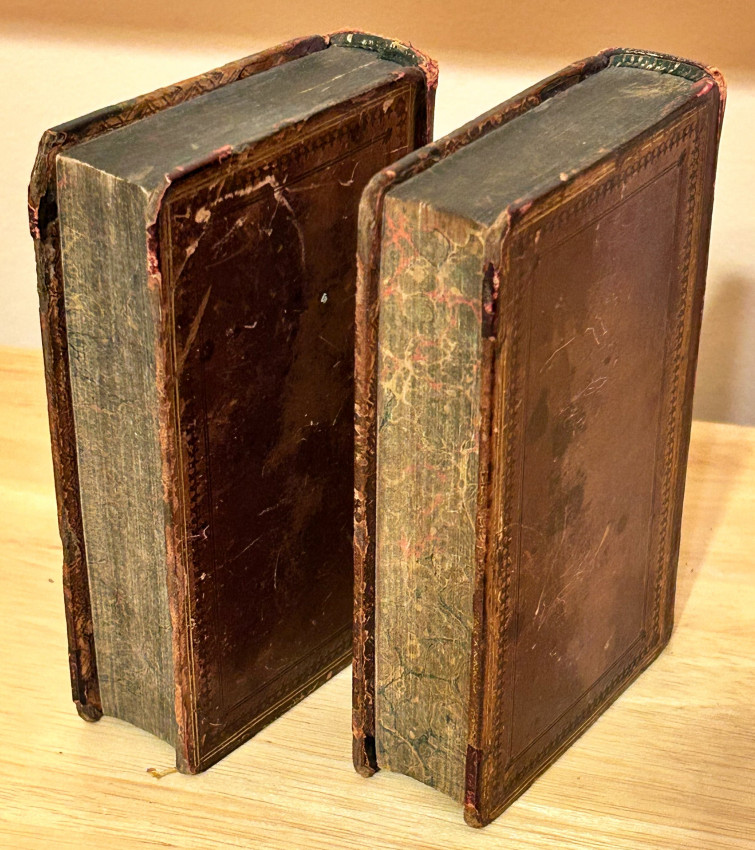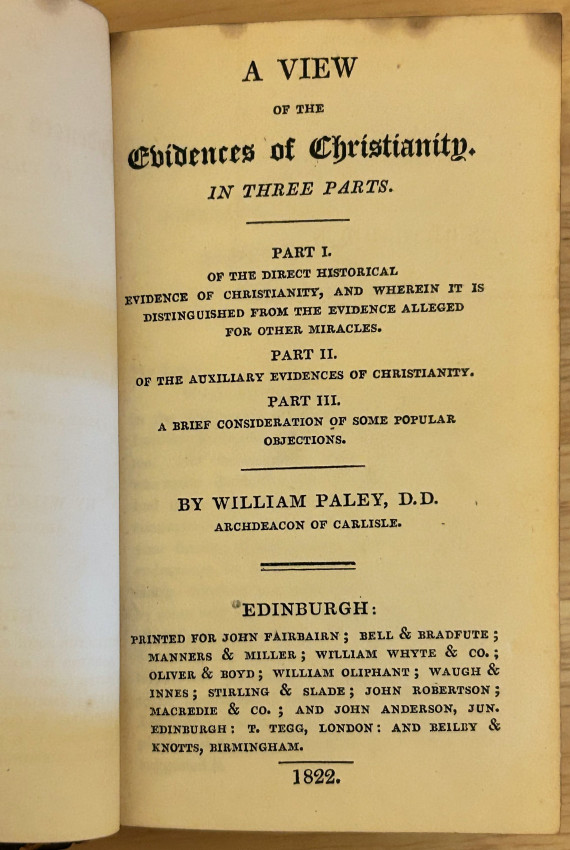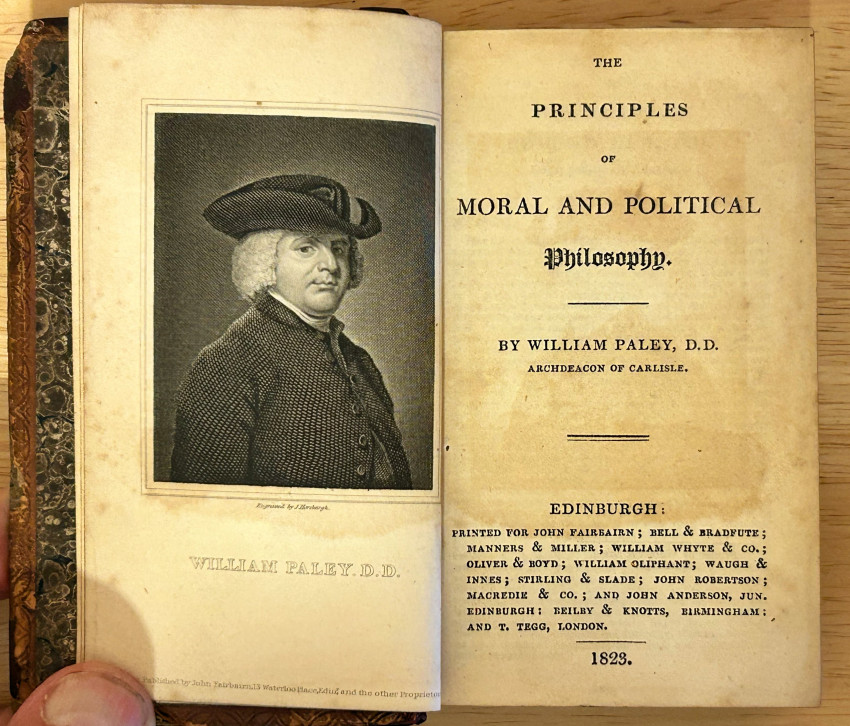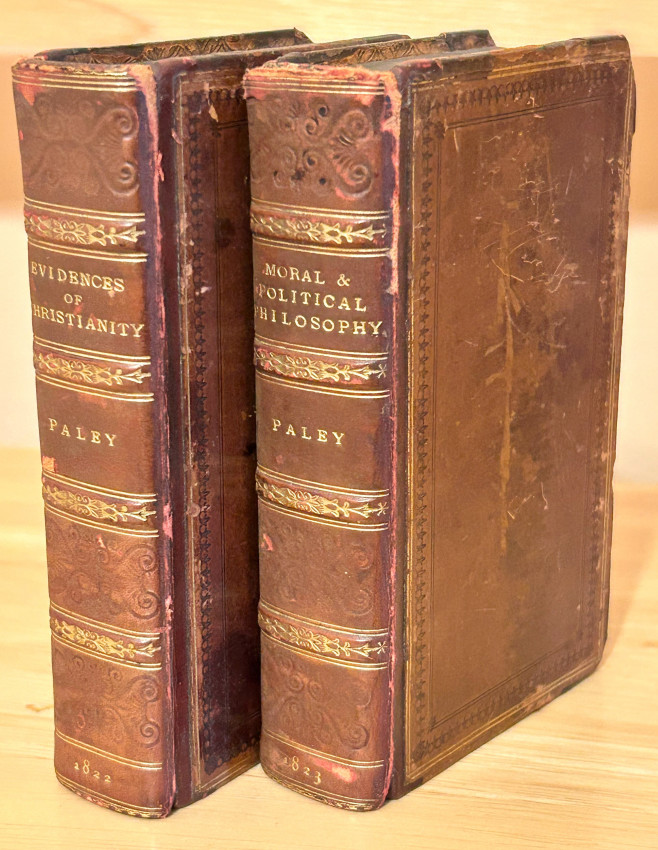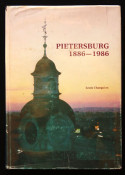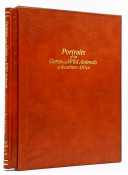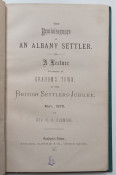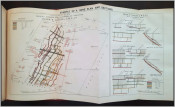Paley (William D.D.)
Two matching volumes, hardback, leather-bound. 437 & 532 pages respectively. Relatively minor scuffing to covers, gilt endorsement and lettering. No visible damage, fading etc. Binding in both books is tight & clean. In very good condition. Published in 1822 & 1823 respectively.
Smaller size, each measuring 220mm x 75mm x 25mm
William Paley (July 1743 – 25 May 1805) was an English Anglican clergyman, serving as Archdeacon of Carlisle. He was a christian apologist, philosopher, and utilitarian. He is best known for his natural theology exposition of the teleological argument for the existence of God in his 1802 work Natural Theology or Evidences of the Existence and Attributes of the Deity, which made use of the watchmaker analogy.
A VIEW OF THE EVIDENCES OF CHRISTIANITY IN THREE PARTS
- Part I. of the direct historical evidence of Christianity, and wherein it is distinguished from the evidence alleged of other miracles
- Part II of the auxiliary evidence of christianity
- Part III a brief consideration of some problem objections
A theological work written in the early 19th century. This treatise examines the historical and rational foundations of Christianity, arguing for its credibility through an analysis of the life and sufferings of its early followers, as well as the miraculous events attributed to its founder, Jesus Christ.
The work seeks to establish that the accounts of these early witnesses are not only genuine but are also supported by a wealth of historical evidence. The opening of the book presents an acknowledgment of the author’s gratitude to the Honorable James York for a significant opportunity in academia. Paley sets the stage for his arguments by discussing the necessity for a divine revelation and how it would naturally be accompanied by miraculous events. He introduces the idea that even though miracles may seem improbable, they are not without their credibility when tied to the revelation of a deity.
Paley emphasizes the sacrifices made by the original witnesses of Christianity, proposing that the nature of their trials and the integrity of their testimony provide substantial grounding for the faith's authenticity. This introduction lays a strong foundation for the subsequent exploration of evidence in favor of Christian belief throughout the text.
First published 1794, this is the 1822 edition
THE PRINCIPLES OF MORAL AND POLITICAL PHILOSOPHY
This classic work by William Paley was one of the most popular books in England and America in the early nineteenth century. Its significance lies in the fact that it marks an important point at which eighteenth-century “whiggism” began to be transformed into nineteenth-century “liberalism.”
First published in 1785, Paley’s Principles of Moral and Political Philosophy was originally based on his Cambridge lectures of 1766–1776. It was designed for instructional purposes and was almost immediately adopted as a required text for all undergraduates at Cambridge.
The great popularity of Paley’s Principles is perhaps due in part to the author’s remarkable gift for clear exposition. Even today, this work is very readable and easily comprehended. But the popularity of the book also reflected the fact that Paley expressed some of the leading scientific, theological, and ethical ideas of his time and place. In this respect, Paley’s great classic provides valuable insight into the Anglo-American mind of the early nineteenth century and helps us better understand the thinking processes and evolving concepts of liberty and virtue that were displacing the old “whiggism” of the preceding century.
As editor D. L. Le Mahieu states, “To Paley, the undeniable demands of self interest coincided rather than conflicted with the needs of society.” Paley believed that “it was the utility of any moral rule alone which determined obligation.” In his political theory, Paley rejected social contract theory and substituted instead a natural history of civil society. His opposition to electoral reform, and, later, the French Revolution, “became part of a larger ideological discourse that helped the British elites withstand the revolutionary currents of the 1790s.”
First published in 1785, this is the 1823 reprint.
- Binding Condition: Very Good
- Overall Condition: Very Good
- Size: 220mm x 75mm x 25mm

